In our blog you can find articles with useful information about the Garden of Virgin Mary, the Monasteries, Cells and Sketes, the routes, but also how to visit Holy Mount Athos. In addition, here you will find authentic monastic recipes, fasting and healthy, as well as prayers for various occasions!
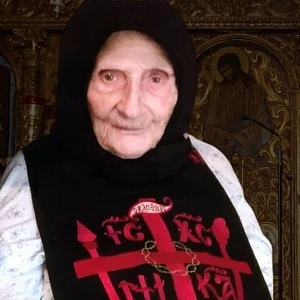
The caretakers who lived near Eldress Galaktia recorded her teachings, in order to capture her spiritual wisdom to enlighten the world. In the article you will read Eldress' words in full about what she feels the Lord wants from us.
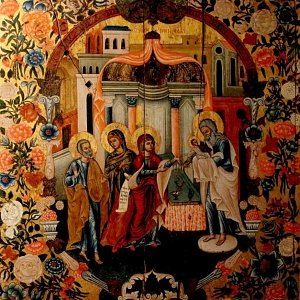
Nowadays, mothers, as Virgin Mary did, ‘offer’ their newborn child to the church and to God, when forty days have passed since birth. This act symbolises the Churching of Jesus Christ. Also, the mother goes through the narthex and is blessed for the cleansing by her puerperium. In this way, the path to baptism of the infant is opened, welcoming the child into Christian life and facilitating the mother’s return to the ecclesiastical community.
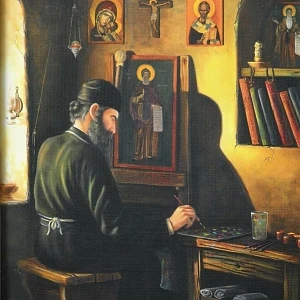
In this article you will read about the symbolism of various objects in Byzantine Iconography, such as the cross and the Church held by the Saints, the open palms, the Gospel, the scrolls, the rod, medical objects, as well as the choices of colors. Orthodox hagiography reveals to Christians the unearthly, which transcends the boundaries of our physical world. It functions as a way of communication and seeks to highlight the new world that will come with the Kingdom of God. This can be expressed through the icons of the Saints, where characteristics such as schematization, simplicity and differentiation prevail.
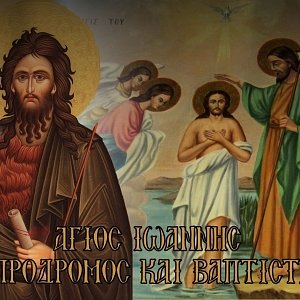
John's work was not only to prophesy the coming of the Messiah but also to prepare the souls of believers. After listening to him intently, then they would confess their sins to him and he would baptize them in the Jordan River as a sign of repentance. Later, Jesus Christ approached him and asked him to be baptized. John, filled with awe and wonder, hesitated, but Jesus urged him to follow the Old Testament scriptures. Thus, John became a baptist of Christ himself, but also a witness to this supreme event.
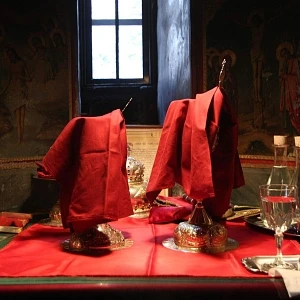
As we know from the writings in the Old Testament, wine acquired distinctive symbolism. After the flood, Noah planted and managed to create his own vineyard. In Exodus, God gave a promise to bless three significant goods for human life: bread, water and wine. The lands and climate in the regions of Hebron and Palestine were conducive for the cultivation of vineyards. Viticulture flourished in a short time and gained great demand, as people cultivated their vines to produce the blessed wine. David hymns wine through his psalms, saying: "And wine that makes glad the heart of man..." (Psalm 104:15) and "You have put gladness in my heart, More than in the season that their grain and wine increased" (Psalm 4:7).
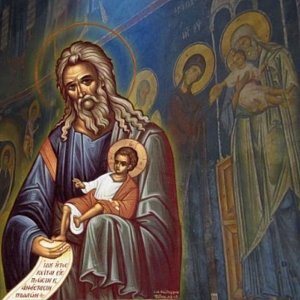
The Feast of the Presentation is celebrated on February 2nd, as it is the fortieth day from December 25th, when Jesus Christ was born. Our Church honors the Meeting of our Lord in the Temple as an extraordinary feast. Joyful hymns are sung from February 2 to 9, in order to bind the holy event and spread joy and hope throughout the world.
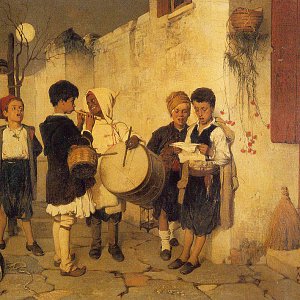
Carols are one of the most timeless customs in many regions. They are usually associated with celebrations of the Twelve Days, that is Christmas, New Year and Epiphany. Essentially, the carols are folk songs and their lyrics express customs that are passed down from generation to generation and are sung even today.
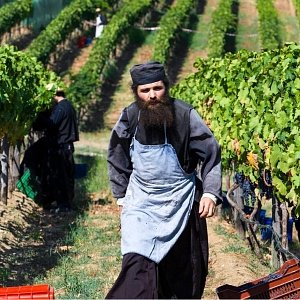
Wine, as a blessed commodity, plays a predominant role in the life of the Athonite monasteries. The founder of the monastic state of Mount Athos, Saint Athanasius the Athonite, decreed that each monastery should have its own vineyards. Thus, since the 10th century, the founders of the monasteries, recognizing the value of wine, have numerous vineyards in their monastic properties. On Mount Athos, there were no large areas for grain, due to the geographical difficulty and the wildness of the place. However, the microclimate of Mount Athos as well as its special vineyards, are key factors for a distinct wine production, unique throughout the Balkan Peninsula and the Northern Aegean. Even today, a number of monks from each monastery are in charge of the cultivation of vineyards and the production of wine.
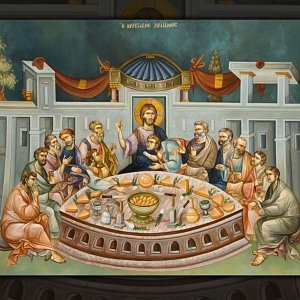
During the Great and Holy Thursday, all the christians commemorate the Last Supper of Jesus Christ with his disciples and the washing of their feet. It is the fifth day of the Holy week and is also called Maundy Thursday. The word Maundy comes from the latin word ‘mandatum’ which symbolizes the words of Jesus Christ ‘I give you a new commandment’.
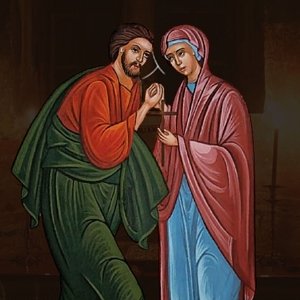
When is the feast of Saint Aquila and Saint Priscilla Our Orthodox Church celebrates the memory of Saints Aquila and Priscilla on 13 February and they are honored as holy spouses in the Christian religion. Apostle Paul mentions the holy couple in many of his Epistles, who contributed greatly to hi...
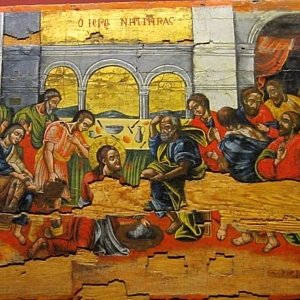
Throughout the Holy Week, the faithful attend the unfolding of the Divine Drama in the churches. Maundy Thursday constitutes the most dramatic day of this week, marked by four significant events.
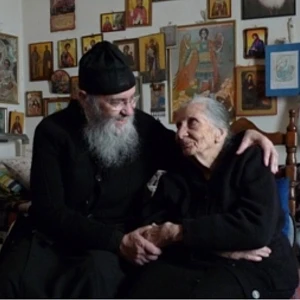
Quotes and teachings for the everyday life from Gerontissa Galaktia. Her teachings are simple and practical, yet distillations of holy wisdom and grace. Eldress' legacy and the testimonies of people who met her are collected in the new book about her life.